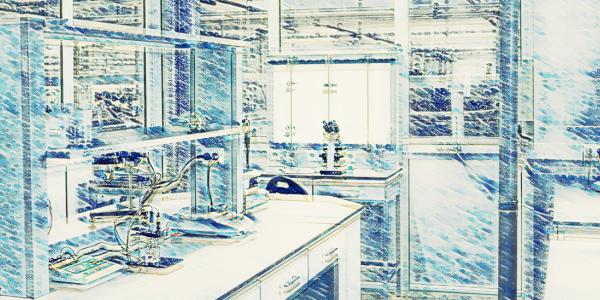The new project will create state-of-the-art instructional labs for students and new spaces for faculty research in the Department of Biology.
As a part of a strategic effort to bolster teaching and research in the Department of Biology, Arts & Sciences plans to create nine new biology teaching labs in Jolley Hall. Scheduled for completion by summer 2024 and use beginning in fall 2024, this project will allow faculty to build out their ideal teaching labs from the ground up.
The new spaces will replace the existing teaching labs in Rebstock Hall and Busch Lab, which have reached capacity due to strong and increasing demand for biology courses. More than 1,700 WashU students took classes in the department last academic year. Moving the teaching labs out of these buildings will create additional instructional space and allow Arts & Sciences to further support the department through new faculty hires.
“This is an exceptional opportunity to invest in a premier department that houses the university’s largest undergraduate major,” said Feng Sheng Hu, dean of Arts & Sciences. “Our vision for the Department of Biology hinges upon expanding and modernizing lab facilities, reducing class sizes, and creating additional space for innovative faculty research programs. This project is critical to meeting those goals.”

“The hope is that, by moving all the teaching operations out of Rebstock and Busch, we can create faculty research labs in those opened areas and hire six to eight new faculty in a three- to five-year time frame,” said Joseph Jez, professor and chair of the Department of Biology. “This project will bring the department into very new directions. We have strengths in molecular and cell biology, plant science, evolution, biology, and neuroscience, and now we can decide what we want to build upon.”
The project is in its initial stages, and Arts & Sciences is holding conversations with the department and its faculty to plan the new teaching labs. “With each particular lab, we’re documenting all of the equipment they need to have, as well as how they teach, in order to get an idea of how the labs should be laid out,” said Dzenana Mruckovski, director of facilities in Arts & Sciences. “It’s like we’re creating a wish list to make the labs as efficient and effective as possible.”
“These new, modern biology teaching labs will greatly enhance the department’s ability to provide hands-on activities that illustrate and supplement what students learn in introductory level courses,” said Barbara Kunkel, professor of biology. “The new space will also make it much easier to teach advanced inquiry-based laboratory classes that give students the opportunity to carry out original research.”
Once completed, the teaching labs will occupy two floors of Jolley Hall. The second floor will hold general-use teaching labs that could support 80 to 100 students in introductory lab courses. Labs on the third floor will be specialized for upper-level lab courses. Students undertaking semester-long, collaborative research projects in these courses will have access to a variety of advanced equipment in one location.
"I think this will be very exciting for our students and our faculty,” said Jez. “In addition to providing them with new, state-of-the-art labs, this project is a huge sea change that will bring a lot of new science to campus.”





